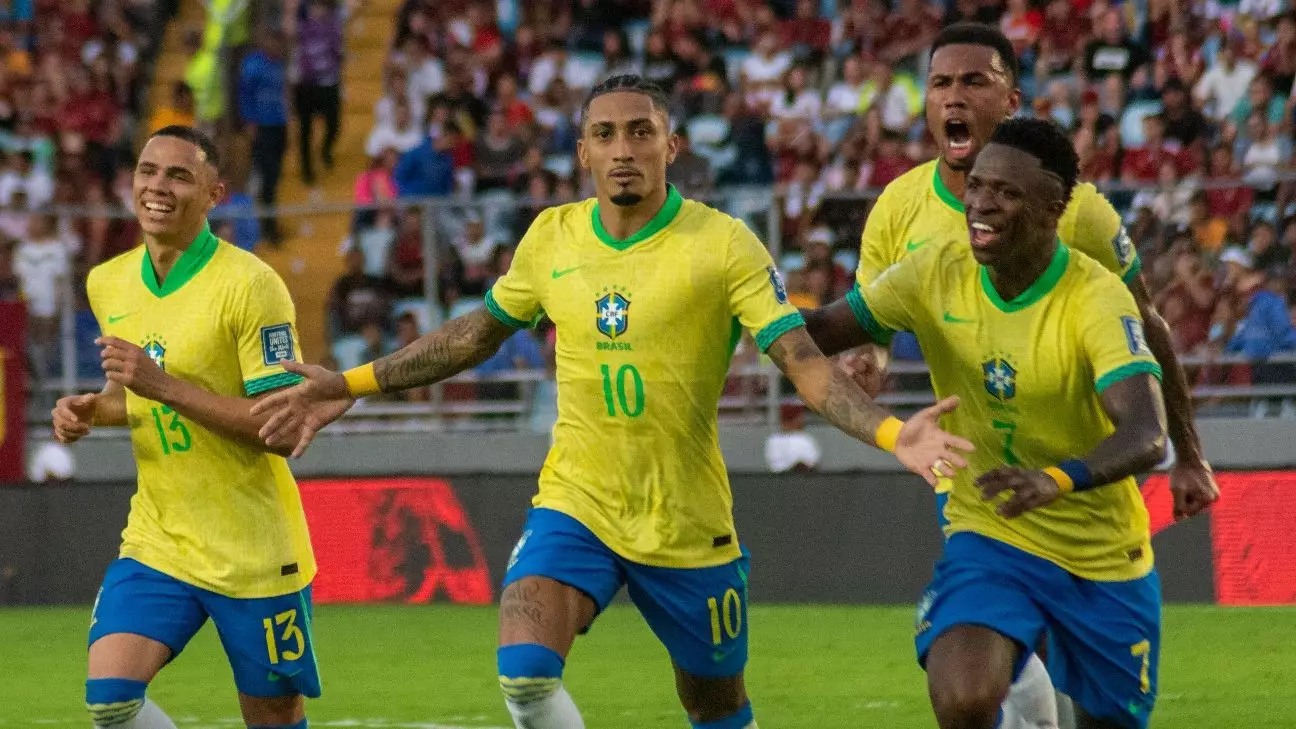In a significant development for both Brazilian football and global sports marketing, the Brazilian Football Confederation (CBF) confirmed an extension of its sponsorship deal with Nike, solidifying a partnership set to last until 2038. Announced on Friday, this lucrative agreement is valued at an impressive $100 million annually, and it also encompasses royalties from national team merchandise sales—a clause absent from previous contracts. This essential addition highlights the evolving nature of sports sponsorship, particularly as brands strive to tap into the lucrative market of national team merchandise.
The new contract not only significantly boosts the financial framework for Brazil’s football entities but also provides the CBF with unprecedented autonomy. For the first time, they will have the ability to license products and establish branded stores across the globe. This represents a shift in strategy that recognizes the immense popularity of Brazilian soccer and its icons. CBF president Ednaldo Rodrigues emphasized the power and allure of Brazilian football, stating, “This contract shows the strength of Brazilian soccer.” Such sentiments underscore the belief that Brazilian football transcends beyond mere gameplay; it embodies a culture and identity celebrated worldwide.
Nike’s involvement in Brazilian football has been profound since its entry in 1996. This long-standing relationship is characterized by mutual benefits; Nike not only promotes its products through the famed Brazilian teams—encompassing men’s, women’s, beach football, and futsal—but also enhances its global brand visibility through association with a football powerhouse. Doug Bowles, Nike’s vice president for Latin America, remarked that this recent agreement reaffirms their longstanding commitment to Brazilian soccer, indicating a symbiotic relationship that has proved fruitful on both ends.
Global Implications and Comparisons
This contract comes amid a broader landscape of sponsorships as other major football federations reassess their partnerships. For instance, Nike also secured a contract with the German football federation, marking a significant shift as they replace Adidas as the kit supplier for Germany’s national teams from 2027. Such developments suggest a dynamic market for sports sponsorship, where brands vie for associations with storied teams to enhance their global reach.
Brazil’s collaboration with Nike not only underscores a successful model of partnership but also sets a benchmark for how national teams can leverage commercial arrangements to fortify their brands. As Nike continues to expand its portfolio of national teams, including those of England, France, and others, the alignment with Brazil remains particularly vivid given the country’s rich football legacy and world-renowned players.
Looking ahead, this robust partnership sets the stage for exciting innovations in merchandising, fan engagement, and global branding strategies. Brazilian football, inherently known for its flair and technique, promises to further distinguish itself internationally, fueled by the backing of a marketing giant like Nike. The deal reflects not just a financial commitment but also a cultural allegiance that will perpetuate the celebration of the “jogo bonito” or the beautiful game, which is at the very heart of Brazil’s football identity. As both entities look to the future, there is little doubt that their intertwined fates will continue to shape the landscape of global football in the years to come.

